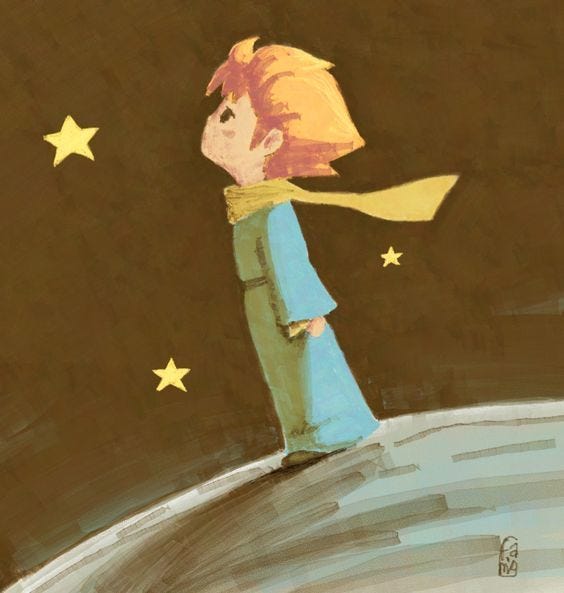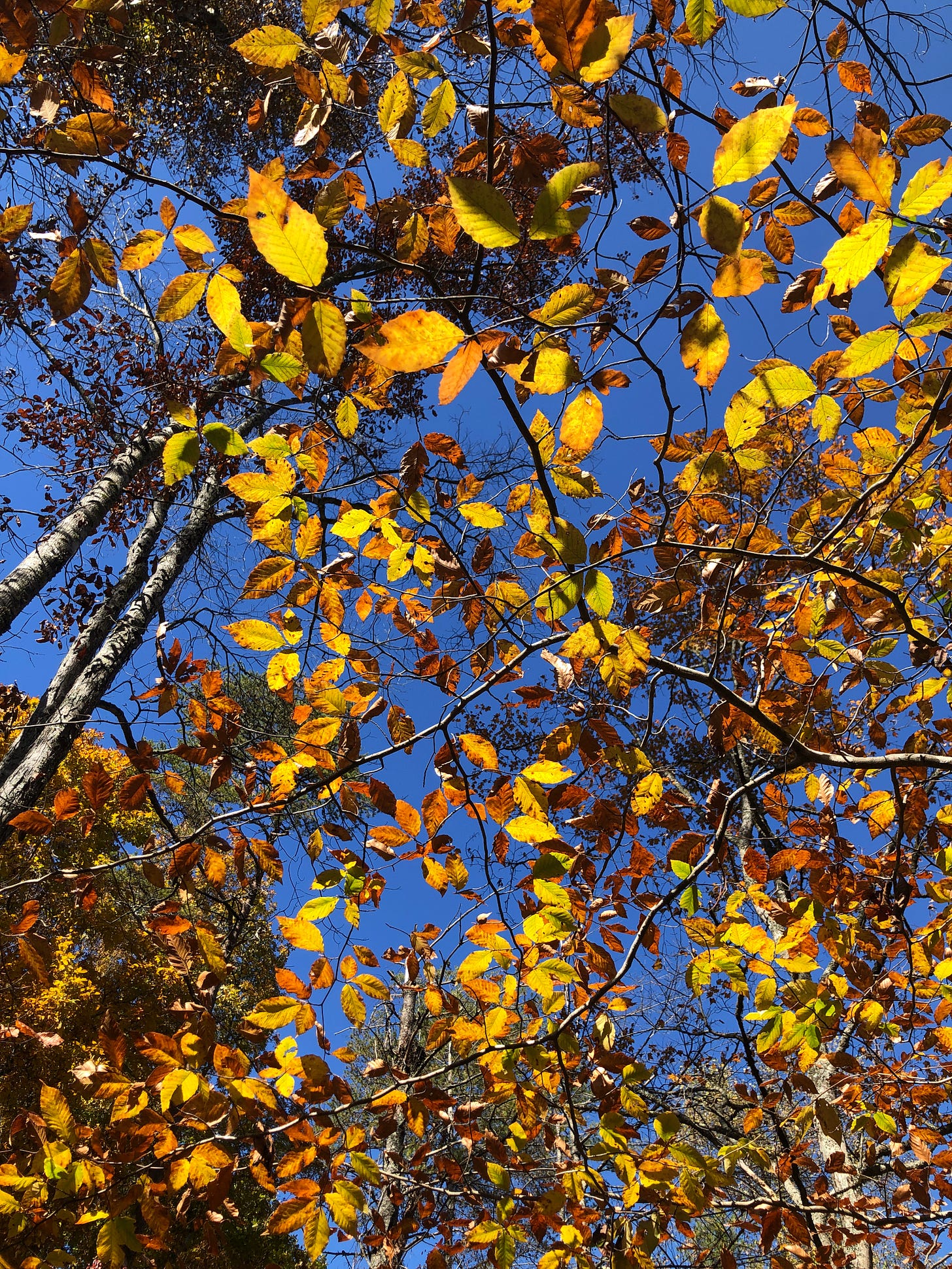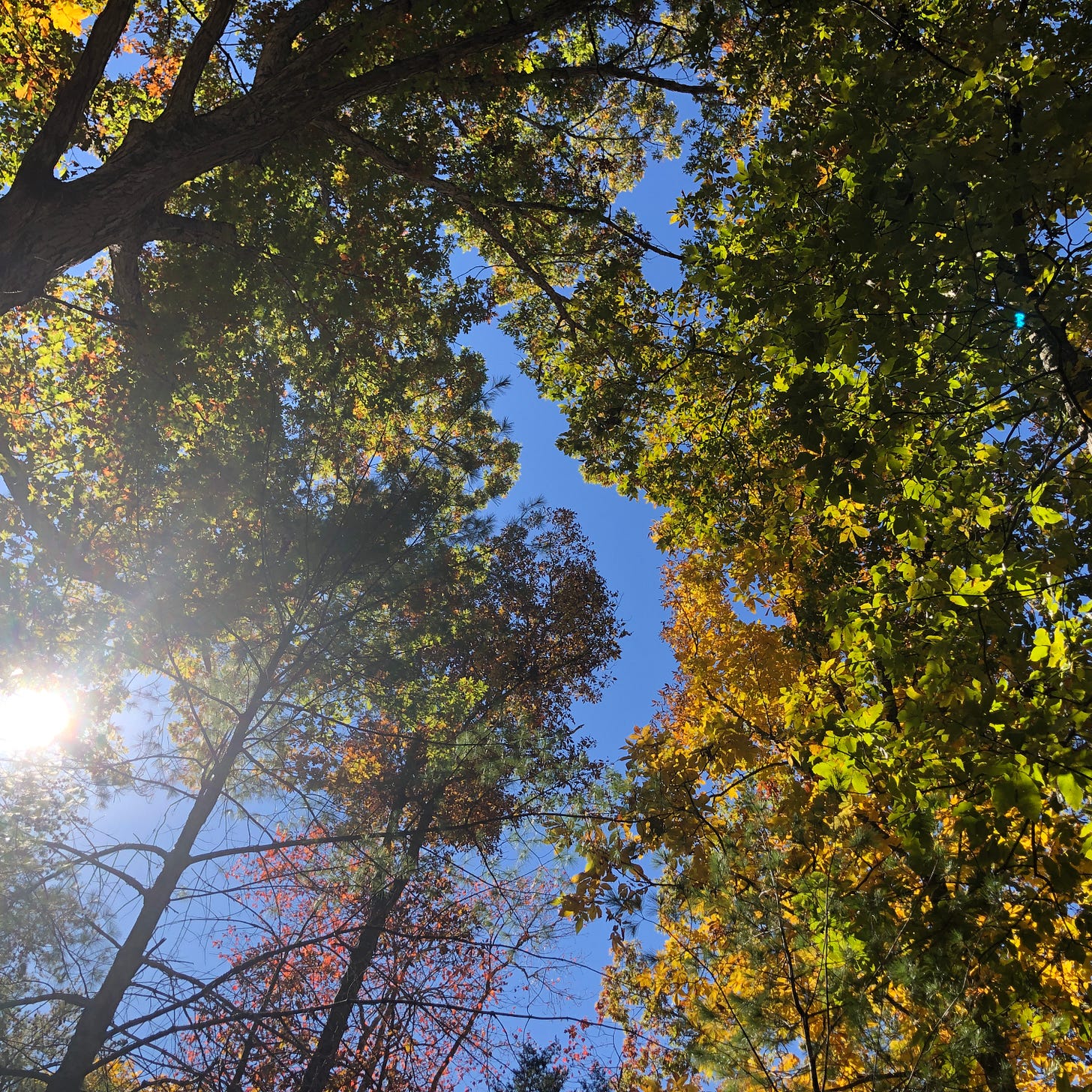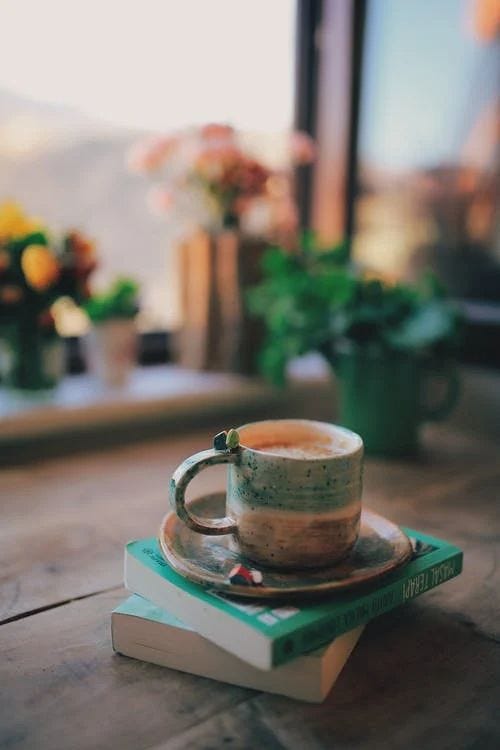Cultivating Rest and Play: Letting go of exhaustion as a status symbol and productivity as self-worth.
Week 1 of The Gifts of Imperfection Mini-Series
“I now see that cultivating a wholehearted life is not like trying to reach a destination. It’s like walking toward a star in the sky. We never really arrive, but we certainly know that we’re heading in the right direction.” -Brené Brown
Welcome. This is A no-pressure mini-series of The Gifts of Imperfection by Brené Brown with loads of encouragement, realness, and joy. You can read the introduction below or just jump in!
I’ve been addicted to caffeine since high school. In college, I was on a three-times-a-day schedule, drinking my last cup of coffee around 4 pm to get my “third wind” so I could stay up studying into the late hours. Working nights as a nurse in the ICU didn’t help the situation. Now, I’m slowly weaning myself off my daily dose because I want to know what my baseline energy levels look like without caffeine.
What does all of this have to do with wholehearted living?
Letting go of exhaustion as a status symbol and productivity as self-worth and Cultivating rest and play is the first guidepost we’ll explore together.
It’s actually # 7 on Brene Brown’s list but we’re starting with it today because it’s the one I need the most.
You, too?
The truth is, figuring out what my capacity is without the use of coffee has everything to do with the over-functioning society we live in. How often do we push ourselves beyond our limits, ignoring our body’s signals of exhaustion by drinking another cup or “refueling” instead of resting?
One of my mantras since becoming a new mom is to honor my limited capacity and trust in divine timing.
This acknowledges that I can’t do it all and allows for Spirit to step in and give me a helping hand. It also calls for a deep surrendering and letting go of my sense of control which I am not good at.
“We’ve got so much to do and so little time that the idea of spending time doing anything unrelated to the to-do list actually causes stress.” -Brene Brown
I’ve been a to-do lister my whole life, probably.
Early journals from my pre-teen years demonstrate budgets composed of $30, plans for the future, and daily tasks to cross off with a sense of achievement.
Who am I without my to-do list?
This is a question I’ve asked far too many times. It’s a way for me to measure how successful my day is. How “good” of a human I am by how much I can accomplish. It signifies time (or not) well spent.
Last week, during our local Creative Mornings gathering, an interesting statement was made during the introduction. While mentioning that the speaker was a poet, the host said, “Poetry is totally useless but it’s extremely valuable.”
Now, this might be a controversial (and bold) statement but something clicked for me.
I’ve been confusing my usefulness with my worthiness and value.
They are not the same.
One more time for the folks in the back.
Your usefulness and your worthiness are not the same.
I know this on an intellectual level (and a physical one, too) but it hasn’t become part of my heart knowledge yet.
I’ve experienced burnout so many times and am so afraid it will happen again, it’s caused me to question if I’m capable of ever having a healthy relationship with work.
“The opposite of play is not work–the opposite of play is depression.” -Dr. Stuart Brown
The cost of exchanging our value for productivity is resentment, burnout, and depletion.
If our identity is entangled with how useful we are to others, instead of asking for help when our tank is empty or allowing ourselves to receive, we feel shame and judge ourselves for not being good enough.
Pretty soon, we’re not feeling worthy or useful.
So, how do we cultivate rest and play?
Last Fall, my husband and I took Noah to the Smoky Mountains for a few days. We stayed on a working farm, nestled against the foothills, surrounded by barn cats and tall, skinny trees. One afternoon, we wandered up the hill next to our cabin, found a sunny patch, and just sat on the forest floor together.
Time stopped.
Noah picked up sticks and raked the leaves while I collected fallen acorns and their cute little acorn shells, holding them in my hands before putting a few in my pocket. Before I knew it, tears welled in my eyes. It was the first time I could remember just being outside with no agenda whatsoever since I was a kid.
Sitting on the ground, all of these visceral memories of playing flooded through my memory. Splashing in puddles for hours. Making mud pies under the tire swing and letting them bake in the sun. Searching for the perfect opening in a bush that could be turned into a temporary fort. Collecting pinecones and hedge apples and leaves and scratches on our legs.
The textures and colors and wonder of it all.
For me, play isn’t possible without leisure. It’s not happening without intentional time and space to be purposeless, to set aside the agenda and throw the celebrated to-do list into a crackling fire. It requires rest as a prerequisite because, without a calm mind and body, we’re less likely to be present.
Presence is necessary for play.
Permission is another important part and this is where I think we can help each other. How can we give our co-workers, children, and friends permission to be more playful? How can we model it, encourage it, and create time for it in our daily interactions?
Heartbeats is a community for artists, caregivers, and messy humans who believe in the power of generative storytelling. By financially contributing to Heartbeats you are saying yes to collaboration, connection, and creating sacred spaces where we can heal, learn, and honor each other with care. Thank you for your presence here. 💞
One thing I’ve thought a lot about as a toddler mom is the difference between playing and being playful.
When I think of making time to play–I immediately go back to my to-do list and add it as something to “check off.” I’m not sure I know how to play without putting some kind of pressure or ideal around it and then feeling guilty when I don’t live up to my own standards.
This attitude is a no-starter. When I feel like this, I won’t even begin to try to invite play into my life.
Yet, Noah is teaching me that playfulness can be a perspective. It can be a moment or two of silliness while washing the dishes or going on a walk. It can be channeling a sense of curiosity and asking, “What if?” It doesn’t always have to be an hour every day of “sitting down to play” however you define that for you. It can be embodied, rather than an activity.
It can be both!
Here’s where I put my health coaching hat on…
Sit with me for a cup?
A valuable skill I learned in my training as a health coach was how to help clients set realistic goals using their strengths, past experiences, and intrinsic motivation. Whenever we’d start wrapping up a session, there were a series of questions we’d ask to help the client gain clarity and take small, sustainable actions toward the goal they had identified for themselves.
Let’s practice a bit together so you can see how this might work and apply it to your whole-hearted journey.
In this case, I’m the client and I’ve identified that I want to cultivate more rest and play in my life.
Client: So, how do I do that?
Coach: Great question! I’m wondering if there are one to two small, measurable, action steps toward this goal you can take in the next week? Something nice and easy to start and then we can check-in to see if they’re working for you.
Client: Hmm, I want to try creating 30 minutes of free, unscheduled time every afternoon M-F for leisure (which may or may not lead to play!).
2) I want to write down the top three things I want to experience in the form of emotions every day (joy, gratitude, safety, self-compassion, trust, etc.) and prioritize those experiences throughout the day instead of getting everything on my to-do list done.
Coach: Great! It sounds like you’ve tapped into your self-awareness to take steps toward your goal and I love that self-compassion came up, too! I’m curious, what might help you be successful in doing these two things during the week?
Client: Well, I could probably mention the 30 minutes of unscheduled time to my husband for some extra accountability. I think he’d be on board and encouraging me to not always worry about cleaning the house or checking my emails.
And for what I want to experience every day, I already spend time in the morning journaling so I think I can easily add this aspect BEFORE I write my to-do list to help me really prioritize and be realistic about how much I can and want to get done in a day.
Coach: Fantastic! I can see your strength of bravery really coming through in being willing to share this with your husband so he can help you stay on track. Is there anything you can anticipate that might get in the way of achieving your goals?
Client: Well, yes. I’ve been using my to-do list as a worthiness measurement for a long time so it will be hard to give up, even when it makes me exhausted and stressed. Maybe I could think of a few other things to measure the success of my day as a substitute? Like how often I laughed or how many times I thought of something to be grateful for?
And if I’m having a hard time keeping to my 30 minutes of unscheduled time, maybe I can reduce it to 15 minutes and go from there?
Coach: Those all sound like great ways to help navigate any challenges that might come up. I’m proud that you’re embarking on this journey and remember it is a practice and way of being. There will always be setbacks and that’s part of the process of learning how to be whole-hearted, too.
Client: Thanks for the reminder! I look forward to catching up next week and exploring how to let go of numbing and powerlessness and cultivate a resilient spirit!
Coach: You’re welcome! I look forward to it, too. And just remember you can reach out any time or leave a comment to let me know your thoughts or ask a question.
End Scene.
I know that might’ve been a little bit cheesy but I hope it gives you a practical way to apply what can often feel like intangible concepts. It’s an easy dialogue you can have with yourself and change out for a lot of different life scenarios where you’d like to make some changes.
Thank you for being on this whole-hearted journey with me. If you’d like some gentle accountability or some friends to continue the conversation with, (more like a book club vibe) I’ll be starting a paid chat each week to talk about the guideposts together!
Below are some additional resources for further exploration.
Resources
Brené Brown talks about this week’s guidepost (7 & 8) with her sisters 👇
Find your strengths! Take the free, research-based Via Institute Strengths Quiz.
If you haven’t already, take the free Wholehearted Inventory to see where you are with each guidepost.
Revisit the Play: New Moon in Leo letter for inspiration on connecting to your inner child.
Read Rest is Resistance: A Manifesto by
and follow her (@thenapministry) on Instagram.Discover what kind of rest you need most (spiritual, creative, physical, mental, etc.) by taking the free rest quiz.
Listen to our special playlist for our book club and add your favorite songs!
Journal prompts:
What would I still want to do, even if no one would ever know or see it?
How can you restructure your to-do list to include more of your values?
When was the last time you felt timeless? Where were you, who were you with, and what were you doing? Is there a connection to this experience and play?
I hope this has been helpful for you. I look forward to sharing another guidepost next week!
All my love,
Mariah
Become part of a creative, collaborative community
Join our Creative Contemplation practice and download the free journal with monthly new moon themes, affirmations and creative prompts.
Say hi in our weekly chat thread and introduce yourself.
Participate in a monthly art share for artists of all backgrounds. Show us your best, bad art!













Your words always hit me in the heart. The biggest take-aways for me were "honor my limited capacity and trust in divine timing." - as someone who views herself as limitless, this was a nice grounding reminder. It also synchronistically connected with a note I made from a book I'm currently reading 'Starry Messenger' which said that "sometimes limitation is put in place to save your life". I thought how you can also applying this to "slow you down", which if you look at it from a health perspective, is saving your life. I also love the prompt to measure worthiness on how many times I've laughed or thought of something I'm grateful for - it takes me out of success as something that can be tangibly measured and instead felt. Thanks Mariah 🌼
Thanks for this post, it resonates with me. I'm glad you find ways to rest, walk outside, look at trees and stars